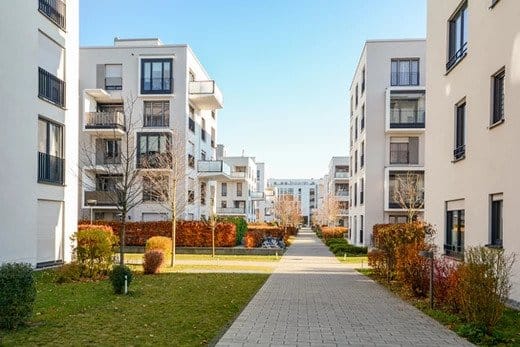- Multifamily rents appear to be on the rise across the US.
- In Texas, however, rents are down year over year.
- While this is good for tenants now, that trend is not likely to last in the long-term.
I like to keep a close eye on real estate market fluctuations. I mean, obviously. Its my job. Lately, I’ve read a bit about a national trend that’s caught my attention: multifamily rents are on the rise. According to some reports, rents across the country have begun a steady climb after a significant dip during the pandemic. This uptick is likely due to a confluence of factors, including increased demand due to a growing job market and a limited supply of new rental units.
But here in Texas, things are a little different. While the national market rebounds, rents in the Lone Star State, particularly in major cities like Austin, seem to be defying the trend and continuing their downward trajectory. This unique situation presents a sigh of relief for Texas tenants, but it also raises some interesting questions for landlords and investors and developers. So what is causing this? Let’s talk about it.
Why is Texas Different?
That’s probably an offensive question to Texans. EVERYTHING IS DIFFERENT IN TEXAS. We are Texas, dammit. Having said that, there are several reasons why Texas might be bucking the national multifamily rent trend. Here are a few key factors:
- Overbuilt multifamily – There are a lot of multifamily units that have come online in the last five years in Texas. It traditionally has been a very attractive and active market. As a result, the supply of units has at least met, if not overtaken the demand. As a result, rents have come down.
- Growth has slowed – For a while now, Texas has been one of the fastest growing states in the country. And Dallas, Austin, San Antonio – all of them have been near the top of city growth. And while there is still positive growth in the area, it has slowed some.
- Pro-Growth City Strategies – I have written about this many times, but the Austin City Council, for example, has recently enacted a lot of pro-growth strategies that make it easier to bring more units online. As a result, this has also increased the supply.
These are not the only reasons rents remain stable in Texas. But it gives a good background and starting point.
What Does This Mean for Tenants?
For Texas tenants, the current situation presents a rare opportunity. Rents are down, and with continued economic uncertainty, they might stay that way for a while. This is a good time to negotiate lease renewals or explore new rental options.
A Word of Caution
While the current market favors tenants, it’s important to remember that this might not be a permanent trend. The Texas economy is cyclical, and new multifamily development has crawled almost to a stop. That likely means – with the continued population growth – that demand will outstrip supply again in the near future. Additionally, the tech sector’s presence in Austin remains significant, and a new wave of companies could always arrive, driving demand back up. Tenants should enjoy the current market conditions but also be prepared for the possibility of future rent increases.
Adapting to the Market
For landlords and investors, the Texas rental market presents a unique challenge. They need to adapt their strategies to the current economic realities. Here are a few suggestions:
- Focus on Value: Landlords might need to consider offering concessions or amenities to attract and retain tenants.
- Consider Short-Term Rentals: The short-term rental market, through platforms like Airbnb, might offer higher yields in the current market compared to traditional long-term leases. However, local regulations regarding short-term rentals should be carefully considered.
- Invest in Different Markets: Investors with a long-term view might consider diversifying their portfolios by looking at rental properties outside of Texas, in markets experiencing a stronger rebound.
The Bottom Line
The Texas rental market is currently defying the national trend. While this is good news for tenants, it presents challenges for landlords and investors. As a Texas real estate lawyer, I advise all parties involved to stay informed about market trends and adapt their strategies accordingly. The Texas housing market is dynamic, and navigating its complexities requires a keen understanding of the unique economic and legal landscape.



